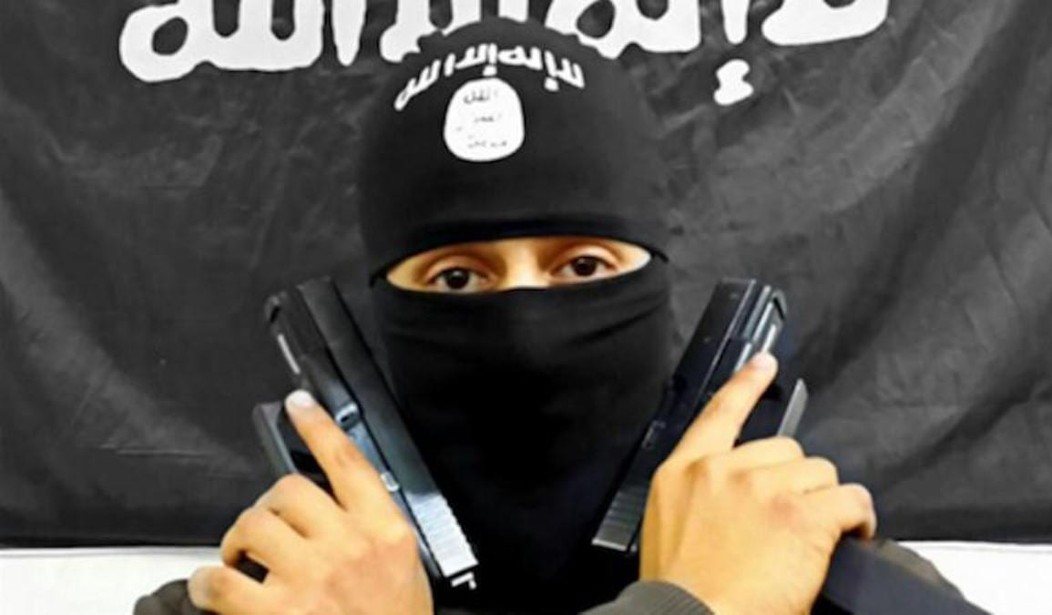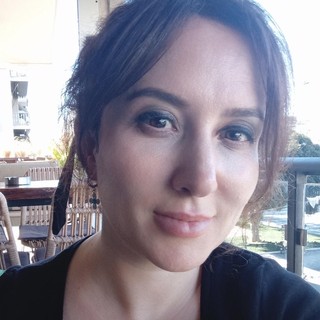Every time jihadi terrorists murder innocent people, political commentators and analysts rightfully start trying to find answers to questions such as:
- “What made the terrorists do that?”
- “How were they radicalized?”
- “Where were they brainwashed?”
A look at Turkey — whose constitution states it is a secular republic, but whose educational system functions otherwise — may yield some eye-opening answers.
Sibyan (Arabic for “children”) schools — centers that provide Islamic pre-school and kindergarten education — are becoming increasingly popular in Turkey. The Turkish newspaper Evrensel recently spoke with two parents who enrolled their children in such schools, but later realized their children were negatively affected by the religious training they received.
“Drawing is a sin!”
One of the parents, Fidan, said that after her three-year-old child started at a sibyan school in Istanbul where university students worked as voluntary teachers, his behavior drastically changed:
He went there for two years and then I started observing some problems in him. He used violence against his younger brother. He actually used to love him so much and was never jealous of him. He also started wetting the bed and started calling everything we did at home a sin.
The child’s problems grew greater with time, and Fidan took him to a doctor. It then became clear that the child was affected by some very serious psychological problems.
Said the mother:
He went into depression, as he had a dilemma concerning what is a sin and what is not a sin. And he vented his spleen on his sibling the most.
For example, he wanted to draw pictures, but “drawing is a sin!” He could only draw houses and trees. [He was taught that] drawing human beings and animals offends Allah. That is why the child ran into a contradiction. [He was taught that] drawing pictures of a mother, father and siblings inside a home is a sin. He started asking questions such as “Is it also a sin for them to live inside a home?” We withdrew him from the sibyan school. He now goes to a state school and a rehabilitation center on certain days. He has been diagnosed with speech and mental deficiencies.
Sevinç, a mother of three, enrolled her five-year-old child in a sibyan school in Istanbul when she started working, and then started observing changes in her child’s behavior:
He started wetting his bed. He became introverted and damaged items at home.
The mother wanted to withdraw her child from the school, but did not do so as the teachers pushed harder to persuade her to let the child continue his education there:
They told me: “At least the child is learning about our religion, which you could never do for him.” Okay, I want him to learn our religion too, but I could not help thinking why the child has changed like that.
The child continued going to the same school for a while until he made comments about his mother having a job, which shocked her:
My five-year-old child told me one day, “It is a sin for mothers to work. Mom, please do not sin. Please do not work. Let my father take care of us. Your money is also sinful. Do not buy with that money the things that I love.” We immediately took him out of that school. Now he is in his first year at a state school … I filed a complaint about that sibyan school at least twice. But no investigative process was started.
These two parents enrolled their children at state primary schools. However, Turkey’s state schools are also increasingly turning into centers of Islamic indoctrination. New curricula contain more classes about jihad and Islamic Sharia law.
In another report published on October 31, Evrensel reported on how the Islamicized curricula and educational system is affecting the thinking of young children at a primary school in the city of Izmir. A parent, Aysel Güven, related what her friend told her about her son who is a student in the sixth grade:
My friend’s child came home from school one day and said: “Mom, I love you so much. I can die for you. I could even jump out of this balcony for you right now.” She was still overwhelmed with shock and worry while she was telling me about it.
When she asked her son where he learned that, the child responded that the teacher in the religion class told them about how Prophet Abraham sacrificed his child and told the class: “One should be able to die for Allah and one’s love for one’s mother.”
“If you love me, you have to do whatever I want”
Then Güven asked her own daughter what they learn in class, to which her child responded by saying they talked about love:
I asked how they talk about it. And she asked me: “Do you love me? How does one show one’s love?” I said that I kiss her and I love her and so on.
But the child protested:
“No,” she said. “That is not the way.” So I asked her what the true way is.
She said that I had to do anything she told me to. Take off my shoes, or sit on the floor. I warned her by saying that this has nothing to do with love and that love does not mean obeying someone’s statements.
What Güven understood of love appeared to be completely different from the teacher’s understanding (in the Turkish language there is only one pronoun for the third-person singular, so gender was not obvious in the following conversation in the original Turkish version):
The teacher of the religion class asked the students if they loved her/him. The students said they did. And s/he asked them how they show their love. The students explained in their own ways.
But the teacher disagreed with their definitions, demonstrating how they must show their love instead:
S/he called on a female student to go near her/him. S/he asked her to take off her shoes. “Now stand before me. And then kneel down.” The student knelt. “That is it,” said the teacher. “If you love me, you have to do whatever I want.”
“Think about it,” said Güven, commenting on the teacher’s behavior. “They equate love with obedience. And they do that to girls. They are trying to turn girls into obedient individuals … Our children are in great danger.”
“Mom, I need to die before I commit too many sins”
Another parent, who wished to remain anonymous, said that her son, who studies in the Fifth Grade, shocked her with his statements on death:
“Mom, I am a sinner,” he said. “Because I swear a lot. I need to die before I commit too many sins.” I told him that swearing is a bad behavior, but we do not need to die because we swear. “We just need to correct our wrong behavior,” I said. Then I asked him who told him these things. He said his teacher of the religion class did. Our children are in great danger and we do not know what we should do.
These young children are brainwashed not only about their lesser self-worth as human beings, but also about animals:
“The child of another friend of mine told her about what they were taught in the classroom. The teacher asked them which animal is most useful to humanity. The children gave answers such as horses, donkeys, sheep, and chicken. The teacher said: “No. The spider is the most useful animal because it protected the prophet [Mohammed].” This is what their teacher of religion said. So, he divides animals as useful and useless and turns it into a culture, basing it on religious references.”
What could happen if young, innocent minds get poisoned by such irrational, hate-filled, anti-humanitarian teachings?
Prof. Dr. Adnan Gümüş of the Department of Education at Çukurova University strongly criticized the glorification of death at these schools:
Imposing on children that they are to be subordinate to an external power and they themselves do not matter at all could eventually lead them to risk death if necessary.
This [type of education] devalues children. It devalues children’s minds as well as skills and terrifies and represses them. Whatever should not be done is being done in those classes. They want to create cowardly, shunned, obedient, and fainthearted children. And this later turns into violence such as ISIS terrorism. It results in not killing oneself, but in something easier, that is, killing others. So, tomorrow, it leads them to killing those who are not like them.
And imagine the despair of parents in the face of such narratives [taught at schools]. It is the parents vis-à-vis a religion.
Muslim children and young people in Turkey and throughout the Islamic world should be protected from Sharia brainwashing. They should instead be provided with an education that could lead them to develop a critical mind and to love, or at least to tolerate, their fellow human beings.
Unfortunately, Turkey is increasingly turning into an Islamic republic, a process accelerated by the radical Islamicization of the educational system.
But what are Muslim children taught in their schools, educational systems, and mosques across Europe, North America, and the rest of the non-Muslim world?
For example, what are they taught about women who work or do not wear the veil, and particularly about kafir (infidel) women? What are they taught about Christians, Jews, Yazidis, Buddhists, Hindus, atheists, and other non-Muslims?
Are they told not to take “unbelievers” as friends, as the Koran demands? Do their teachers or imams teach them to engage in taqiyya (deception) and to lie if necessary in order to advance the cause of Islam?
Are they told that those who leave Islam are to be executed?
What are they taught about polygamy? Are they taught to believe that a Muslim man can marry as many as four women at a time? What are they taught about child marriages? What do their teachers tell them if they ask what the marriageable age for girls should be? Six or nine?
Are they taught that Islamic scriptures encourage Muslim men to keep women as sex slaves? Or that, according to Sharia, homosexuality is punishable by death?
Some might still wonder why non-Muslims should even care about what is taught at Muslim schools or mosques in Western societies.
The fact is that not every culture is equal.
The radical Islamicization of societies does not only occur as a result of violent jihad. Terrorism is a problem that should definitely concern us, but it does not pop up in a vacuum. In many cases, it is the result of decades of indoctrination beginning in pre-school, continuing throughout the educational system, and then amplified in the mosque.
Nevertheless, the cultural consequences of Islamicization on communities — particularly on freedom of conscience, religious liberty and women’s rights — are issues that many are inclined to overlook or ignore. But these are exactly the burning issues that Western governments and nations must pay more attention to and stand guard against their proliferation.
History is filled with examples of how even the most powerful empires representing great civilizations fell at the hands of much less-civilized ones with strong religious or political convictions.
Those born into free societies might be inclined to take their liberties for granted, thinking that they and their future generations will somehow always be blessed with democracy and freedom. But one should always remember that freedom is both precious and fragile. It could easily be compromised or even destroyed — not necessarily overnight, but gradually over a generation — if the necessary precautions required to protect it are not taken.
Islamic schools and mosques must be closely monitored if Western governments are serious about the proliferation of jihadi zombies and Islamic supremacists in their own streets.










Join the conversation as a VIP Member